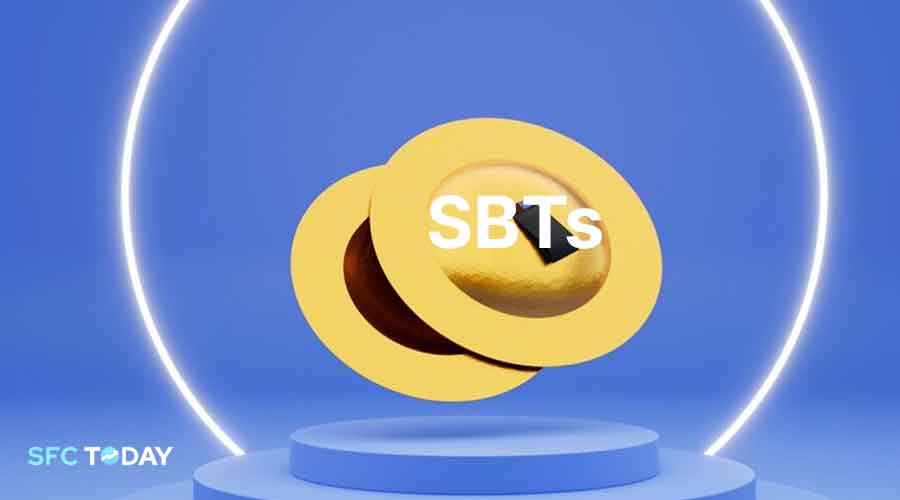What Are Soulbound Tokens (SBTs), and How Do They Work
Soulbound Tokens, SBTs is the new concept in the blockchain world. People normally have heard of NFTs or Non-Fungible Tokens, which is an application to represent digital art, collectibles, or assets. SBTs do this inversely by focusing on identity, reputation, and trust in the digital space. The tokens have enormous potential toward redefining credentials, achievements, and identities, managed and verified on the blockchain.
What are Soulbound Tokens (SBTs)
SBTs represent a non-transferable token on blockchain technology. They differ in that they can be bought, sold, or traded, unlike ordinary NFTs. They instead lock to one address and cannot be transferred. This can be seen as being a form of a digital badge or certification of representing personal credentials, like degrees, licenses, or any membership in an organization.
A term “soulbound” relate to an idea in which the user cannot separate these tokens from his identity and remain attached forever, much like the concept of a “soul” in the game cannot be sold to someone else or transferred. SBTs are made such that they can never change to be unchangeable proof of a person’s accomplishments, experience, or trustworthiness in decentralized places.
How Do Soulbound Tokens Work
Like NFTs, SBTs exist on blockchain networks. The difference here is that a token is non-transferable and non-mutable. Here is how it works:
- Issue Creation: An institution or an organization, for example, a university, employer, or a blockchain organization, issues an SBT to the user wallet address. It is a token for a verified achievement or credential.
- Permanence: Since the SBT is issued, it’s locked to that address. It cannot be transferred elsewhere. The token will thereby remain attached to the originating recipient and serve as an immutable digital credential.
- Verifiability: Other individuals or organizations can verify a legitimate SBT by checking their blockchain record. This empowers any person to assert the validity of the credential in question without having to require centralized authorities or intermediaries.
With the binding of the SBTs to any wallet, blockchain ecosystems enable decentralized identity systems such that achievements and qualifications may be secured and verified hassle-free.
Use Cases and Applications of SBT
SBTs have many future application scenarios across various markets. Some of the main uses include:
- Digital Badges of Education: Educational levels like degrees or professional certifications might represent SBTs, representing an immutable, verifiable way of claiming qualifications.
- Reputation systems: Tokens also can represent reputation badges, earned by users due to their contributions, being trustworthy or governance within any decentralized finance project or any DAO.
- Health and Medical Records: Hospitals and medical centers may use SBTs in the form of certificates like being vaccinated or holding a licensed medical professional that can’t be reproduced or transferred in any manner.
- Membership and Access Control: SBTs can be a kind of proof for membership in particular groups, organizations, or communities. Because it cannot be transferred, they cannot be sold; thus, they can be most suited to selective access systems.
Benefits and Drawbacks of SBTs
Benefits
- Increased Trust and Identity Authentication: SBTs allow decentralized, trustless identity authentication. It, thus reduces dependency on the central authority and, thus, fraud or misrepresentation.
- Immutable Ledger: SBTs establish an immutable ledger of one’s qualifications and achievements, meaning it cannot be tampered with or forged.
- Safety Features: Because SBTs are non-transferable, they are safer than NFTs or any form of digital assets that may be sold for cash to minimize risks from theft or hacking.
Limitations
- Privacy Issues: Public blockchains will store personal credentials or achievements, and so create privacy issues. Like other SBTs, issuance mistakes are permanent in them.
- Adoption Barriers: The concept of SBTs is still novel and takes some time before its applicability at a large scale may be possible, more specifically by institutions and organizations, who must issue and verify such tokens.
- Potential for censorship: In theory, someone could use SBTs improperly to punish or blacklists people, which opens further questions about how such a token might affect the reputations of individuals online
Conclusion
Soulbound Tokens are an interesting invention into the blockchain space as presenting new ways of handling issues of identity, reputation, and trust in decentralized spaces. SBTs stand as a bright star for non-transferable use cases. It can find various applications from digital credentials to membership systems. However, even with such advantages, the problems regarding privacy and adoption are present. With advancement in the technology of blockchain, it will have a chance to change the ways of the credential and achievement handling within the digital world.


